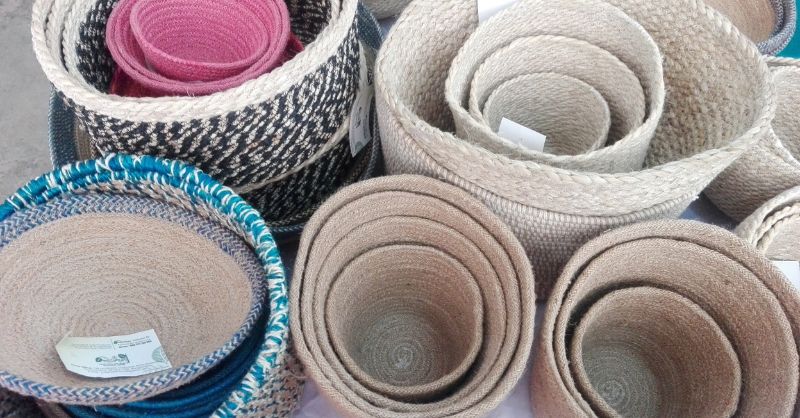Growing Demand for Wholesale Jute Products Reflects Sustainable Fashion Trend
13 July, 2023

Wholesale jute products have been witnessing a significant surge in demand recently, as more consumers embrace sustainable and eco-friendly fashion choices. Jute, a versatile and natural fiber, is gaining popularity in the textile industry due to its environmental benefits and unique properties. With a range of products such as jute bags, fabrics, crafts, and even jute slippers, this eco-conscious material is making its mark on the fashion landscape.
Jute bags have emerged as one of the most sought-after wholesale jute products in recent years. These bags offer an eco-friendly alternative to plastic and synthetic materials, which have a detrimental impact on the environment. Jute bags are not only durable and stylish but also biodegradable and recyclable. This makes them an attractive choice for environmentally conscious shoppers who want to reduce their carbon footprint.
The demand for jute fabrics is also on the rise, driven by the growing interest in sustainable clothing options. Jute fabric is lightweight, breathable, and has excellent insulating properties, making it suitable for a variety of garments. From trendy dresses to comfortable shirts, jute fabrics offer a unique blend of style and sustainability. Fashion designers and manufacturers are increasingly incorporating jute fabrics into their collections, catering to the increasing demand for eco-friendly clothing.
Jute crafts are another category of wholesale jute products that have gained popularity in recent times. These intricately designed and handcrafted items showcase the creativity and craftsmanship of artisans. Jute crafts encompass a wide range of products, including home decor items, wall hangings, and even jewelry. Consumers are drawn to these one-of-a-kind pieces that not only add a touch of elegance to their homes but also promote ethical and sustainable practices.
In addition to the aforementioned products, jute product slippers have also found their place in the wholesale market. Jute slippers offer comfort, breathability, and a natural alternative to synthetic materials commonly used in footwear. With their eco-friendly appeal and comfortable design, jute slippers are becoming a popular choice for those seeking sustainable footwear options.
The rise in demand for wholesale jute products can be attributed to the increasing awareness among consumers about the environmental impact of the fashion industry. The textile industry is known for its heavy reliance on non-renewable resources and harmful manufacturing processes. However, jute products offer a sustainable solution by utilizing a natural fiber that is biodegradable and renewable.
Furthermore, the production of jute products supports local communities and provides livelihood opportunities for farmers and artisans. Jute cultivation and processing involve low chemical input, making it a more sustainable choice compared to conventional textile materials. This positive social and environmental impact adds to the appeal of wholesale jute products in the market.
The growing popularity of wholesale jute products has also caught the attention of businesses and entrepreneurs looking to tap into the sustainable fashion market. Many companies are expanding their product lines to include jute-based offerings, recognizing the shift in consumer preferences. This not only diversifies their product range but also positions them as environmentally conscious brands.
The increasing demand for wholesale jute products reflects the rising interest in sustainable fashion and ethical consumerism. Jute bags, fabrics, crafts, and slippers are gaining traction as consumers seek eco-friendly alternatives to traditional materials. With their unique properties and positive environmental impact, jute products are carving a niche in the fashion industry. As the world becomes more environmentally aware, it is encouraging to see the growing adoption of sustainable materials like jute, paving the way for a greener and more responsible future.
TAG(s):
